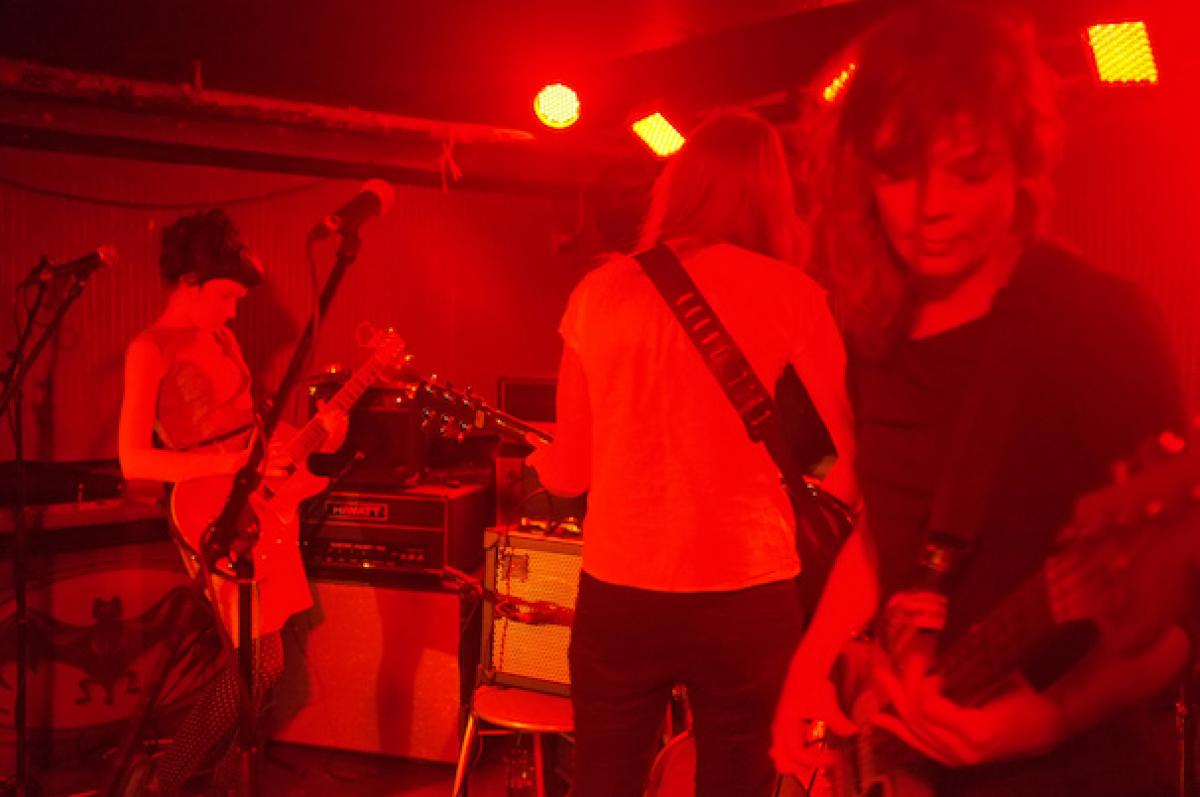
Fresh and Ironic
«In this country, you gotta make the money first. Then when you get the money, you get the power. Then when you get the power, then you get the women.» That's how the video clip «Champs-Élysées» by Bonnie Banane and Walter Mecca (Waltaa) begins, a quote by Tony Montana from the gangsta movie Scarface. As our author states, this video mimics today's trivial lifestyles and challenges at the same time the misconception of women by parodying their seeming frivolity. From the Norient book Seismographic Sounds (see and order here).
«Champs-Élysées» is a provocative music video that uses parody to spread awareness about a superficial society that only worries about brands and money. The video’s audiovisual discourse is powerful because it is delivered by Bonnie Banane, a fresh French female rapper whose appearance contrasts with the stereotypically oversexualized image of her mainstream counterparts. The critique of a materialistic society starts with the video’s title. The Champs-Élysées of Paris is used as the symbol of consumerism and the concentration of top luxury brands that have converted materialism into a myth. People do not consume brands because they need to meet certain needs, but because they want to reach a social status and recognition and reflect a certain identity. In this video, material objects and brands rain down in an imaginary scenario, while money is shown to be the passport to a materialistic and shallow life that is made easier by the effects of drugs.
To parody today’s trivial lifestyles, Bonnie Banane uses the conventions of rap, a once minority and revolutionary genre that has been co-opted by capitalism. Some brands have found in hip hop a community willing to consume symbols of distinction and rebellion. Bonnie Banane and Waltaa offer a context that gives rap its subversive origins back. This argument becomes more significant when a woman delivers it because nowadays female rappers who criticize superficial lifestyles obsessed with beauty and money are a minority. Advertising and successful music videos performed by rappers such as Niki Minaj reinforce the stereotypical image of women as artificial with surgically-enhanced bodies. Bonnie Banane, with a nod to 1990s fashion and brilliant audiovisuals, challenges this misconception of women by parodying their seeming frivolity.

Two examples include the beginning of the video when she quotes Scarface or her desexualized performance – in contradistinction to Minaj – and confident attitude. Based on this video, it can be argued that she offers an alternative representation of a female rapper. Finally, it is important to note that the song is free to download on weirdata.net, a label founded by Waltaa. Bonnie Banane’s decision to make it available there strengthens the anti-capitalist message of her clip.
Cool, hot, dope, sharp, easy, nice, real and tight are keywords that describe «Champs-Élysées». This sparkling music video shows, via a female and «fresh» voice, the dark aspects of a materialistic lifestyle in which only money matters.
This video is part of the Norient exhibition «Seismographic Sounds» and this commentary was published first in the correspondent Norient book.
Biography
Shop

Published on October 30, 2015
Last updated on April 30, 2024
Topics
Why is a female Black Brazilian MC from a favela frightening the middle class? Is the reggaeton dance «perreo» misogynist or a symbol of female empowerment?
Musicians need to pay rent and taxes. But their relationship to money is highly ambigious.
From post-digital pop mocking the music history to Romanian folk music turning into a meme culture.



